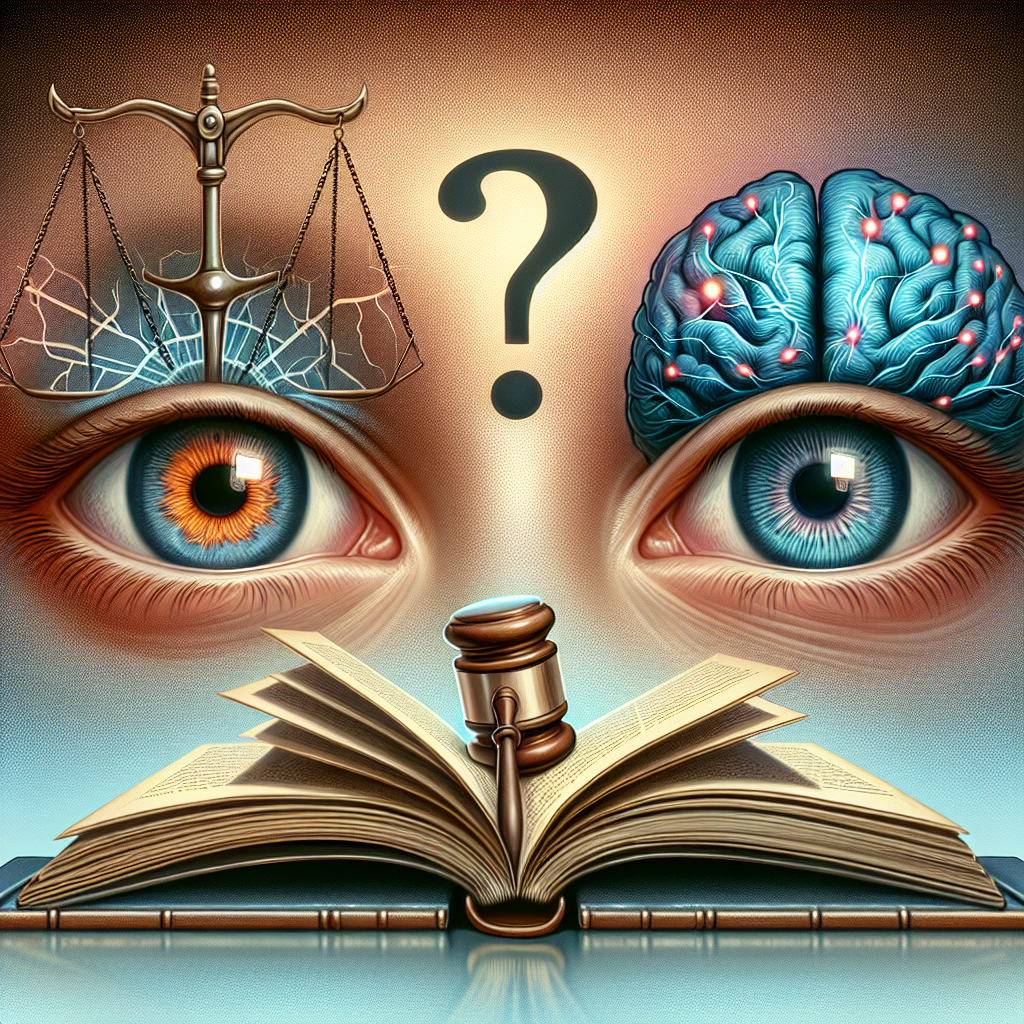Introduction
Imagine being a juror in a court case, where someone’s fate hangs in the balance based largely on what a witness claims to have seen. Eyewitness accounts can sway decisions, evoke emotions, and even convict the innocent or let the guilty walk free. Given their weight, one must ask: are these eye-witnesses reliable, or do they merely present a distorted version of reality? In this article, we will explore the intricate nature of eyewitness testimony, delving into whether it fills the role of trustworthy accounts or becomes risky recalls fraught with uncertainty.
The Psychology Behind Eyewitness Testimony
Understanding Memory Formation
Memory is not a perfect recording; it’s more akin to piecing together a puzzle. Research in cognitive psychology reveals that memories can be influenced by numerous factors, leading to distortions and inaccuracies. Factors such as pressuring questioning, emotional states, and even social influence can greatly alter recollections.
| Factors Affecting Memory | Description |
|---|---|
| Stress | High-stress situations can impair the ability to encode memories accurately. |
| Misinformation Effect | Exposure to misleading information can contaminate a person’s memory of an event. |
| Confidence vs. Accuracy | A confident witness may not necessarily be a reliable one; confidence does not equate to accuracy. |
Case Studies Illustrating Eyewitness Account Risks
The Central Park Five
In 1989, five teenagers were wrongfully convicted in the assault of a jogger in Central Park, New York City. Their conviction was largely based on flawed eyewitness accounts, leading to years of imprisonment until their exoneration in 2002, reinforced by DNA evidence. This grave error emphasizes the critical question of whether eyewitness accounts can be considered trustworthy testimony.
The 2000 Presidential Election
The chaos during the 2000 presidential election, particularly in Florida, involved numerous eyewitness statements regarding ballot issues. These perceptions varied greatly, with people recalling events with profound differences based solely on their emotional investment in the outcome. Such discrepancies highlight the subjective nature of eyewitness testimony.
Reevaluating the Role of Eyewitness Accounts
Legal Perspectives
In the legal arena, eyewitness accounts are often treated as credible evidence. However, there is growing advocacy for greater scrutiny and validation of such testimonies, as highlighted by organizations like the Innocence Project. The role of forensic psychologists is crucial in assessing the reliability of these accounts.
The Ethical Dimension of Eyewitness Testimony
Balancing Justice and Memory
How do we reconcile the potential for wrongful conviction with the need for justice? Ethical considerations come into play, emphasizing the importance of training law enforcement to conduct interviews that minimize memory distortion. Recognizing the fallibility of memory is essential for a fair judicial process.
Eyewitness Accounts in Media and Pop Culture
Perception vs. Reality
Movies and television often sensationalize eyewitness accounts, portraying them as infallible. While engaging, these portrayals can lead the public to overestimate the reliability of eyewitness testimony, further complicating real-world expectations and assumptions in legal contexts.
Conclusion
In summary, eyewitness accounts hold a significant yet precarious place in our understanding of justice and the law. They can either serve as powerful testimonies reflecting truth or risky recalls that misguide the judicial process. As we navigate this pivotal component of our legal system, ongoing dialogue, refined practices, and enhanced training are essential to ensure that truth prevails.
FAQs
1. Can eyewitness testimony be fully trusted?
While eyewitness testimony can provide valuable accounts, its reliability is often compromised due to various psychological factors.
2. What can be done to improve the reliability of eyewitness accounts?
Training for law enforcement, the use of cognitive interview techniques, and corroborating evidence can improve the reliability of eyewitness testimony.
3. How often are wrongful convictions attributed to eyewitness misidentification?
Studies suggest that approximately 75% of wrongful convictions in the U.S. involve mistaken eyewitness identifications.
4. Are there methods to evaluate the accuracy of an eyewitness’s memory?
Yes, techniques such as assessing the consistency of their account, psychological evaluations, and comparing testimonies can aid in evaluating memory accuracy.
5. What role does media play in shaping perceptions of eyewitness accounts?
Media influences public perception significantly, often exaggerating the reliability of eyewitness accounts and contributing to misconceptions about their infallibility.
In the quest for justice, understanding the nuances of eyewitness accounts is more crucial than ever. While they can be essential, the risks posed by flawed recollections underscore the importance of critical scrutiny in the pursuit of truth.

